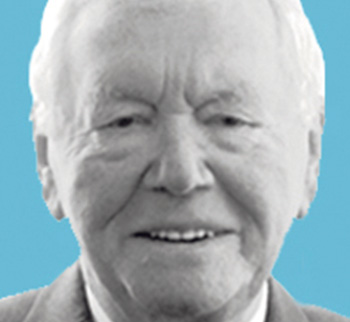There can be no Judaism without Jews. In view of low birthrates, high incidence of intermarriage and, of late, the “new” anti-Semitism, Jewish communities outside Israel may be in danger, if not of extinction then of being reduced to ultra-Orthodox enclaves, a Jewish version of the Amish.
If we don’t panic, it’s because more than six million Jews now live in Israel. Though religious extremists are gaining ground there, as elsewhere in the world, the majority still reflects a wide range of Jewish perceptions and practices.
But can we really envision Judaism only as the official religion of one state, however essential it is to our Jewish existence, and the risk of a Jewish version of the Taliban becoming dominant there?
Those who affirm that a vibrant Diaspora must remain an integral part of normative Judaism have good reason to encourage conversion. Primary targets may be women and men who have Jewish ancestry. In their search for roots and family memories, some may wish to embrace the faith their parents or grandparents abandoned.
That may have been, at least in part, behind the decision some 30 years ago of the American Reform movement to accept as Jews those who’ve one Jewish parent, whether father or mother, thus challenging traditional Jewish law that only recognizes Jewish descent on the mother’s side.
Actress Gwyneth Paltrow followed the traditional path. Not unexpectedly, her recent conversion attracted much media attention. Though she’s the daughter of a Jewish father, who is said to come from a long line of rabbis, and a non-Jewish mother, she chose to undergo a traditional conversion.
That’s also the approach of Shavei Israel (Returners to Israel). Its founder, Michael Freund, reflects the aim of the organization when he writes that although Paltrow needed halachic confirmation of her status, she has “a historical, biological and even spiritual connection with the Jewish People.”
Freund is proud of the achievements of Shavei Israel in its “reaching out to lost tribes and far-flung communities of Jewish descent, seeking to strengthen their connection with Israel and the Jewish People.” It’s a kind of Birthright project for all ages.
His critics, however, are understandably uncomfortable with references to biology and alarmed by his alliance with the Israeli chief rabbinate, known for its reactionary stance on matters of Jewish status.
But Shavei Israel has brought back to Judaism thousands of men, women and children from far-flung places and helped many of them to be integrated in Israel. Yet in the long run, something more drastic is needed. Attracting people with Jewish ancestry, of whom there may be millions worldwide, is a beginning, but there are likely to be many more who’d find in Judaism what they’re looking for in life, not because of biology, but because of theology.
To meet their individual spiritual needs and, at the same time, the collective needs of the Jewish people should be on the agenda of Diaspora Jewry. Not only do we live among non-Jews in search of the sacred, but here we’re free from the draconian strictures of the Israeli rabbinic establishment.
If the liberal movements in Judaism – Reform, Reconstructionist, Renewal, Conservative, modern Orthodox and perhaps others – would combine their resources, potential converts would find it much easier to be integrated into the Jewish community. But even if each group has to go it alone, they can do much more to make Judaism attractive to potential converts by helping them to find a spiritual home and at the same time contribute to the survival of the Jewish People.
Of course, there are obstacles. Those of us who’ve helped non-Jews married to Jews to embrace Judaism know that the main stumbling block is often the ambivalence of the Jewish partners and the hostility of their families.
As a start, therefore, we owe it to ourselves to open up the debate. The spiritual well-being of individuals and the demographic future of our people are at stake.
